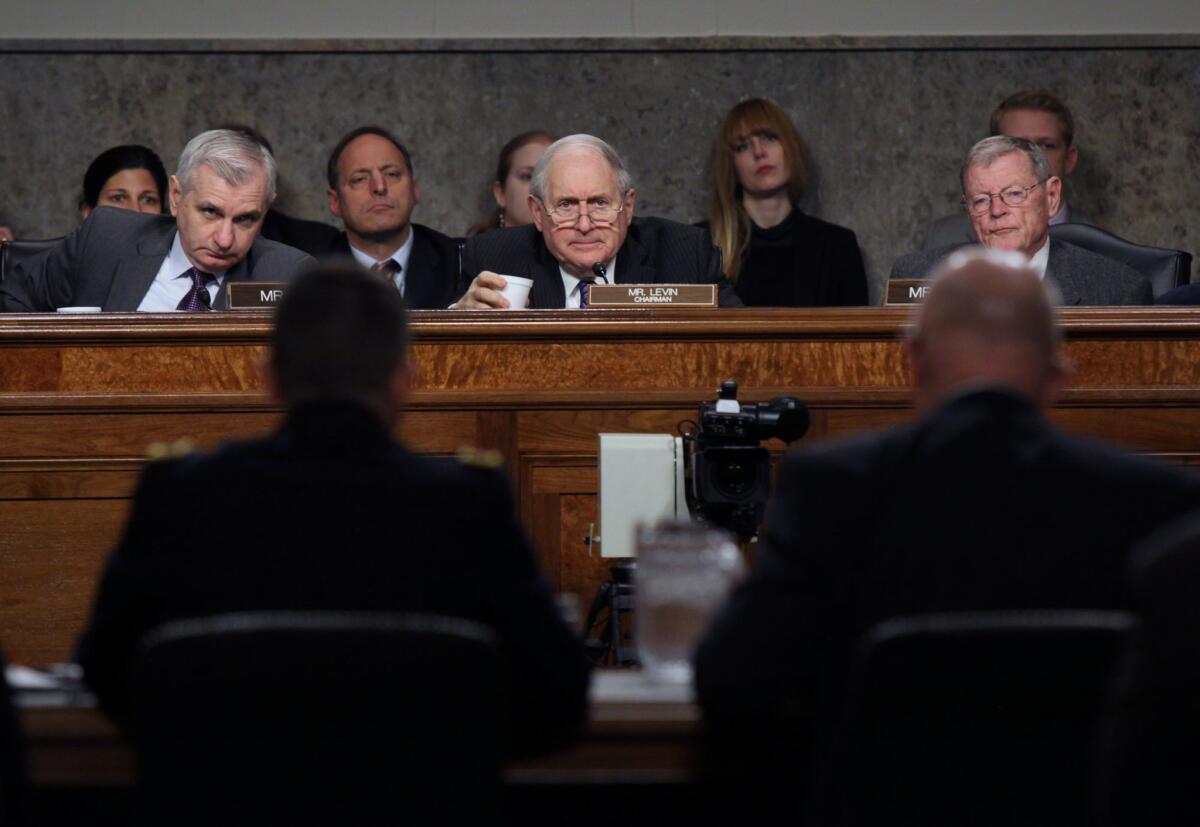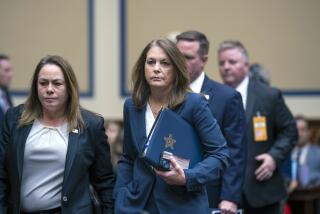Sen. Levin’s bid to boost drone oversight falters in Congress

- Share via
WASHINGTON -- An effort by a powerful U.S. senator to broaden congressional oversight of lethal drone strikes overseas fell apart last week after the White House refused to expand the number of lawmakers briefed on covert CIA operations, according to senior U.S. officials.
Sen. Carl Levin (D-Mich.), who chairs the Armed Services Committee, held a joint classified hearing Thursday with the Senate Intelligence Committee on CIA and military drone strikes against suspected terrorists.
But the White House did not allow CIA officials to attend, so military counter-terrorism commanders testified on their own.
Levin’s plan ran aground on the Washington shoals of secrecy and turf, according to congressional aides and other U.S. officials, none of whom would be quoted by name discussing classified oversight matters.
The CIA and the Pentagon’s Joint Special Operations Command run parallel drone programs in Yemen, each with its own target list. JSOC drones have killed militants in Somalia, while CIA drones are used in Pakistan.
The CIA reports only to the Intelligence Committee, while JSOC operations are mainly briefed to the Armed Services Committee. All such hearings take place behind closed doors because the operations are classified.
In May, the White House said it would seek to gradually move armed drone operations to the Pentagon. But lawmakers added a provision to the defense spending bill in December that cut off funds for that purpose, although it allows planning to continue.
Levin thought it made sense for both committees to share a briefing from generals and CIA officials, officials said. He was eager to dispel the notion, they said, that CIA drone operators were more precise and less prone to error than those in the military.
But the House and Senate intelligence committees closely guard their status as keepers of intelligence secrets, including covert operations.
Sen. Saxby Chambliss of Georgia, the ranking Republican on the Senate Intelligence Committee, balked at allowing the CIA to brief the Armed Services Committee, even though he sits on both panels.
The White House and CIA also had concerns. Officials had little appetite for briefing the 26 senators and 62 House members who sit on the armed services committees on the CIA’s most sensitive operations.
“They didn’t want to have to do this in the House,” one aide said. “If you open this thing up to the House Armed Services Committee, that means a third of Congress will have been read in to the CIA drone program.”
In the end, the White House refused to provide the necessary security clearances for members of the House and Senate armed services committees to be briefed on the CIA drone program. And the White House instructed the CIA not to appear at the hearing.
“The CIA didn’t appear at the hearing due to clearance issues that the White House is still working to resolve with the committee,” said a U.S. official who was not authorized to be quoted discussing the matter.
The military sent Michael G. Vickers, undersecretary of Defense for intelligence; Michael Lumpkin, assistant secretary of Defense for special operations and low-intensity conflict; and Lt. Gen. Joseph L. Votel, the JSOC commander.
Levin invited Senate Intelligence Committee members to sit in, but few did.
Twitter: @kendilanianLAT
More to Read
Sign up for Essential California
The most important California stories and recommendations in your inbox every morning.
You may occasionally receive promotional content from the Los Angeles Times.











